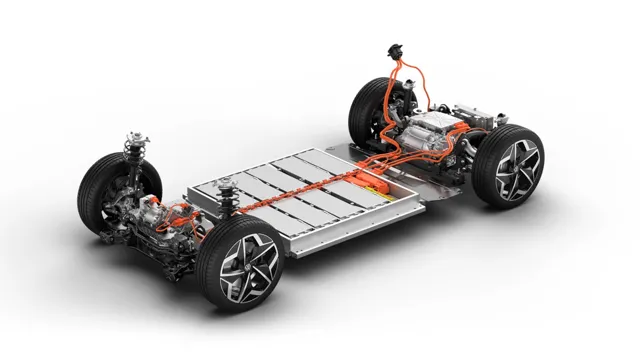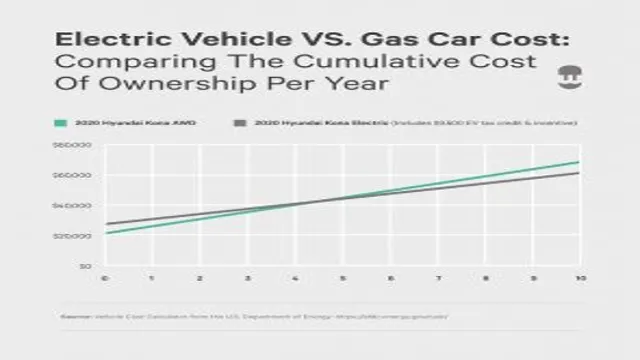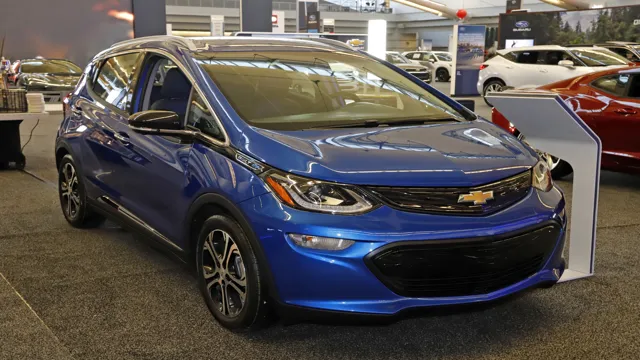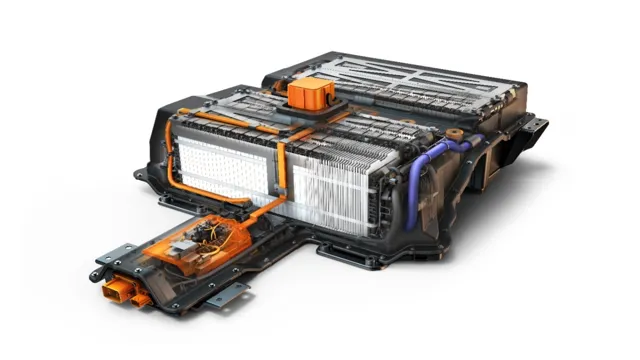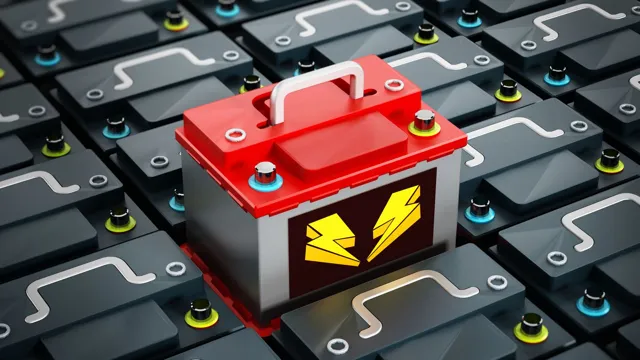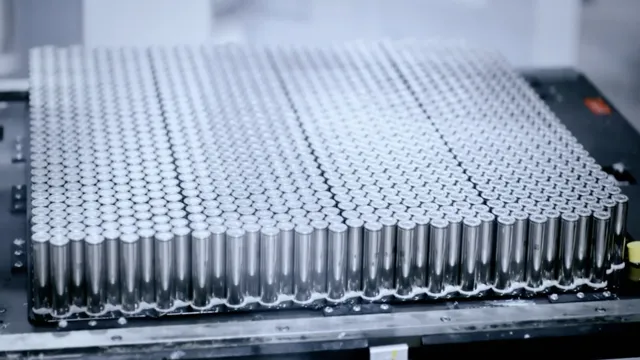Exploring the Lithium Connection: Everything You Need to Know About Electric Car Batteries
Have you ever wondered what type of batteries power electric cars? Well, you’re not alone. Many people are curious about the components and technology that make electric cars run. One of the most common questions is whether the batteries that power electric cars are lithium-based.
The answer is yes, most electric car batteries use lithium-ion technology. But what exactly does that mean, and how does it compare to other types of batteries? In this blog post, we will explore the world of electric car batteries and explain why lithium-ion batteries are the most popular choice for automobile manufacturers. So buckle up, and let’s dive in.
Yes, Most Electric Car Batteries Use Lithium-Ion Technology
Yes, most electric car batteries are made using lithium-ion technology. This is because lithium-ion batteries have a higher energy density, which means they can store more energy in a smaller and lighter battery pack. This makes them ideal for electric vehicles, which require a lot of energy to power their electric motors.
Additionally, lithium-ion batteries are also more efficient and have a longer lifespan than other types of batteries, such as lead-acid batteries. However, it’s worth noting that there are some electric vehicles that use other types of batteries, such as nickel-metal hydride batteries or solid-state batteries, but these are generally less common than lithium-ion batteries. So, if you’re in the market for an electric vehicle, chances are it will be powered by a lithium-ion battery.
Learn About Lithium-Ion Technology
If you’re wondering what type of battery powers electric cars, look no further than lithium-ion technology. Lithium-ion batteries, also known as Li-ion batteries, are the standard choice for most electric vehicles on the market. These batteries are known for their high energy density, which means they can store a lot of energy in a small amount of space.
This translates to longer driving ranges for electric cars. In addition, Li-ion batteries can handle a high number of charge and discharge cycles, making them a reliable choice for electric vehicle manufacturers. They also have a relatively low maintenance cost compared to other types of batteries.
So if you plan to buy an electric car, you can be confident that you’ll be using lithium-ion technology to power your vehicle.
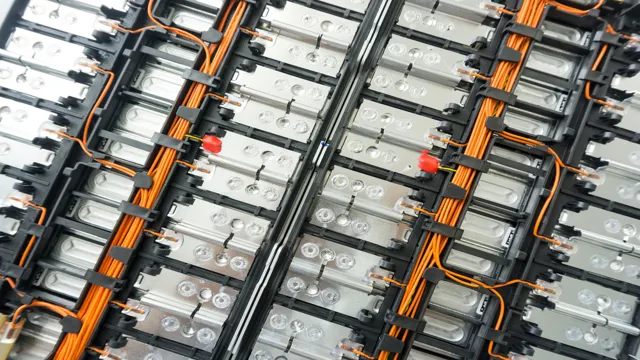
Advantages of Lithium-Ion Batteries
Lithium-Ion Batteries Lithium-ion batteries have become the go-to technology for most electric vehicles today. This is due to their many advantages. Firstly, they have a high energy density, which means they can store a lot of energy in a small space.
This translates to longer range and battery life for electric vehicles. Secondly, they have a low self-discharge rate, which means they can retain their charge for extended periods, making them ideal for vehicles that are not used frequently. Thirdly, they have a fast charge rate, allowing electric vehicle owners to recharge their vehicles quickly.
Lithium-ion batteries are also more environmentally friendly than other battery technologies, as they do not contain toxic heavy metals such as lead and cadmium. This makes recycling easier and less harmful to the environment. Overall, there are many advantages to using lithium-ion batteries, making them the preferred choice for electric vehicle manufacturers today.
Other Types of Electric Car Batteries
Yes, many electric car batteries are made of lithium, specifically lithium-ion batteries. However, there are also other types of electric car batteries that are used in some vehicles. Nickel-metal hydride (NiMH) batteries were commonly used in earlier hybrid vehicles, such as the Toyota Prius.
These batteries have a lower energy density than lithium-ion batteries, meaning they require more space to store the same amount of energy. More recently, some electric car manufacturers have been experimenting with solid-state batteries, which promise to be lighter and more efficient than lithium-ion batteries. While lithium-ion batteries are currently the most common type used in electric cars, it is possible that newer, more advanced battery technologies will emerge in the future to replace them.
Nickel-Metal Hydride Batteries
Nickel-metal hydride (NiMH) batteries are another type of electric car battery that is less commonly used compared to lithium-ion. NiMH batteries are often used in hybrid vehicles because they have a higher energy density than lead-acid batteries. However, their energy density is lower than lithium-ion batteries which means that they have a shorter driving range.
The downside to NiMH batteries is that they are heavier and take longer to charge. They also have a higher self-discharge rate which means that the battery will lose its charge over time even when it is not in use. Despite these limitations, NiMH batteries are still a viable option for hybrid vehicles and can be used as a stepping stone towards all-electric vehicles in the future.
Solid-State Batteries
Solid-state batteries are not the only type of electric car batteries being developed. There are other types of batteries that may offer unique advantages and drawbacks. For example, lithium-ion batteries are already currently used in electric vehicles, but newer forms are being developed, such as Li-Sulfur and Li-Air batteries.
While these types of batteries have the potential to offer higher energy density than the existing Li-ion batteries, they face challenges such as issues with stability and lifespan. Another type of battery being developed is flow batteries, which use a liquid electrolyte rather than a solid one. These batteries have the potential to be more durable and long-lasting, but the large size and complexity may make them less suitable for use in electric vehicles.
Ultimately, the choice of battery will depend on the specific needs of the vehicle and its intended use.
Flow Batteries
Flow batteries are another type of electric car battery that may soon become more common. These batteries are unique in that they use two different liquids, separated by a membrane, to store energy. When the battery is in use, the liquids move through the membrane to create electricity.
One of the advantages of flow batteries is that they can be recharged quickly simply by replacing the used liquid with fresh liquid. This makes them potentially useful for long-distance travel, where fast recharging is important. Additionally, flow batteries are less prone to catching fire than lithium-ion batteries, which is a major safety concern for electric cars.
However, one drawback is that they are currently more expensive to manufacture than lithium-ion batteries. As technology advances, it will be interesting to see whether flow batteries become a viable option for electric vehicles.
Why Lithium-Ion Batteries Are Popular for Electric Cars
Yes, electric car batteries are typically made of lithium-ion cells. These batteries have become the most popular choice for electric vehicles due to their high energy density, long lifespan, and relatively low weight. Lithium-ion batteries have the ability to store more energy per unit of weight than other battery types, making them ideal for use in electric cars where weight and space are at a premium.
Additionally, lithium-ion batteries have a longer lifespan compared to other battery types. They can be recharged thousands of times, making them a cost-effective investment for electric vehicle owners. These batteries also have a low self-discharge rate, which means they can retain their charge for longer periods, making them ideal for use in cars that are not used frequently.
The popularity of lithium-ion batteries in electric cars is also due to the fact that they are relatively safe and reliable. Lithium-ion batteries have undergone extensive testing and development to ensure they are safe to use. They are designed with multiple safety features, including a battery management system that monitors and controls temperature and voltage levels.
Overall, the advantages of lithium-ion batteries make them the ideal choice for electric vehicles. They offer high energy density, long lifespan, are relatively safe, and have a low self-discharge rate, all while offering a more sustainable source of power for cars. As electric cars continue to grow in popularity, it is likely that lithium-ion batteries will remain as the go-to choice for powering these vehicles.
High Energy Density
Lithium-ion batteries have become the most popular choice for electric cars due to their high energy density. Energy density is simply the amount of energy that can be stored in a given volume or mass. Lithium-ion batteries have a higher energy density than other types of batteries, which means they can store more energy in a smaller and lighter package.
This makes them an ideal choice for electric cars, allowing them to have a longer driving range and a lighter battery pack, resulting in better performance and efficiency. Additionally, lithium-ion batteries are known for their high efficiency, meaning they can convert more of their stored energy into actual power for the car. With advancements in technology, lithium-ion batteries continue to improve in terms of energy density and durability, making them an increasingly attractive option for electric car manufacturers and consumers alike.
Long Life Cycle
One of the biggest advantages of lithium-ion batteries is their long life cycle. These batteries can last for many years, making them a popular choice for electric cars. Unlike traditional lead-acid batteries, lithium-ion batteries are able to withstand a greater number of charge and discharge cycles without losing their capacity.
This means that an electric car with a lithium-ion battery can go further for longer without needing to be recharged. This is particularly important for drivers who want to use their electric cars for long trips, as they can rely on their battery to provide enough power to get them where they need to go. Overall, the long life cycle of lithium-ion batteries is one of the main reasons why they are so popular for powering electric cars.
Conclusion: Lithium-Ion Batteries Power Most Electric Cars
Well, it’s safe to say that electric car batteries are no longer just a fairy tale. And, just like how the glass slippers fit perfectly on Cinderella’s feet, lithium seems to be the perfect fit for powering electric cars. With its lightweight and high energy density, lithium has become the go-to material for making electric car batteries.
So, to answer the burning question – yes, electric car batteries are made of lithium, and who knows, maybe in the future, we’ll all be able to live happily ever after with electric cars being the norm.”
FAQs
What are electric car batteries made of?
Most electric car batteries are made of lithium-ion cells, which are known for their high energy density and long lifespan.
Are all electric car batteries made of lithium?
No, not all electric car batteries are made of lithium. Some car manufacturers use other types of batteries, such as nickel-metal-hydride or solid-state batteries.
How long do lithium-ion batteries typically last in an electric car?
The lifespan of a lithium-ion battery in an electric car depends on several factors, such as the type of battery, the driving conditions, and how well the battery is maintained. However, on average, lithium-ion batteries can last for 8-10 years or up to 200,000 miles.
Are there any disadvantages to using lithium-ion batteries in electric cars?
While lithium-ion batteries have many advantages, such as high energy density and long lifespan, there are some disadvantages as well. One of the main issues is the cost of the batteries, which can make electric cars more expensive than gas-powered vehicles. Additionally, lithium-ion batteries can be sensitive to extreme temperatures and may require special cooling or heating systems to operate efficiently.
